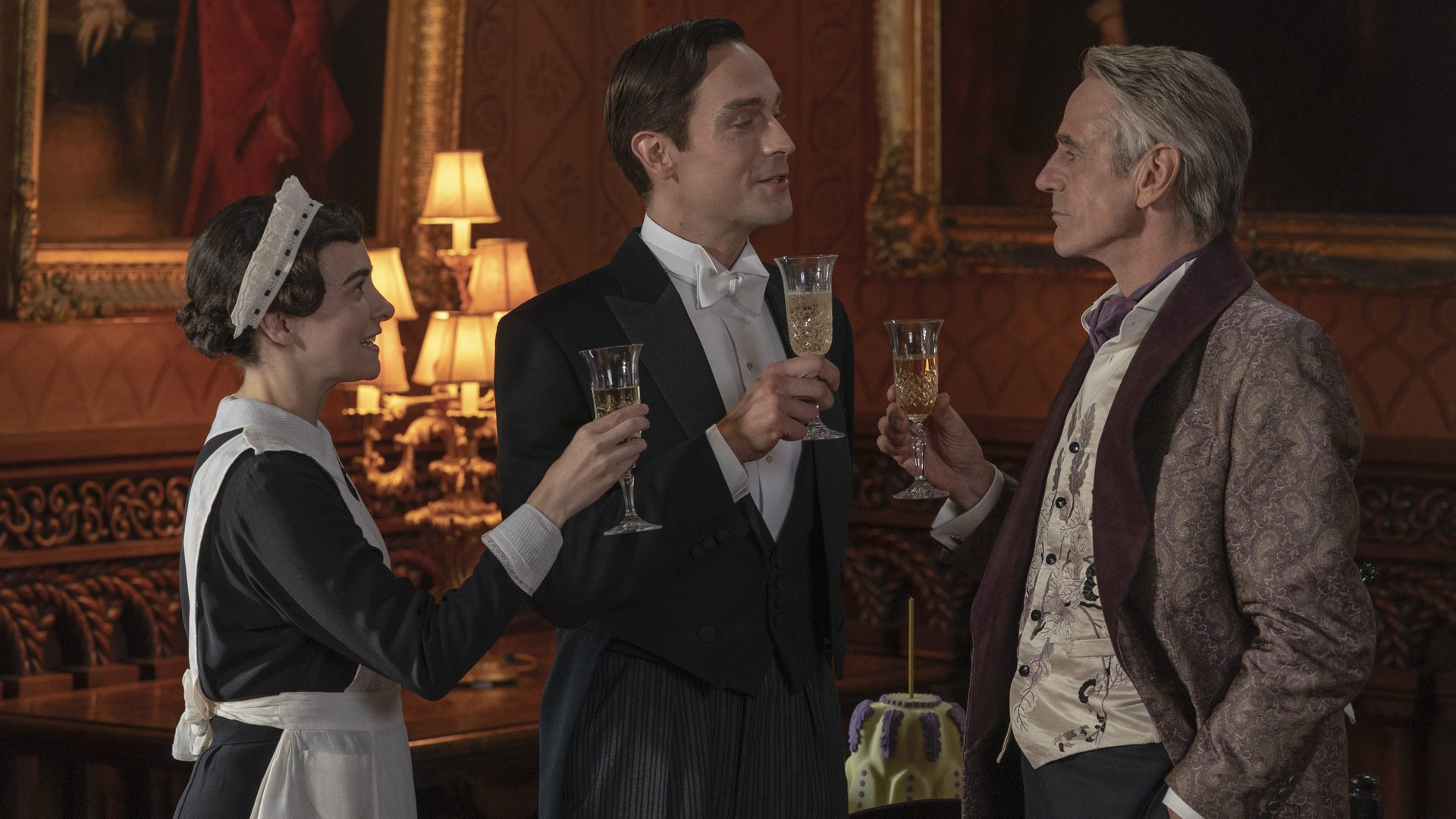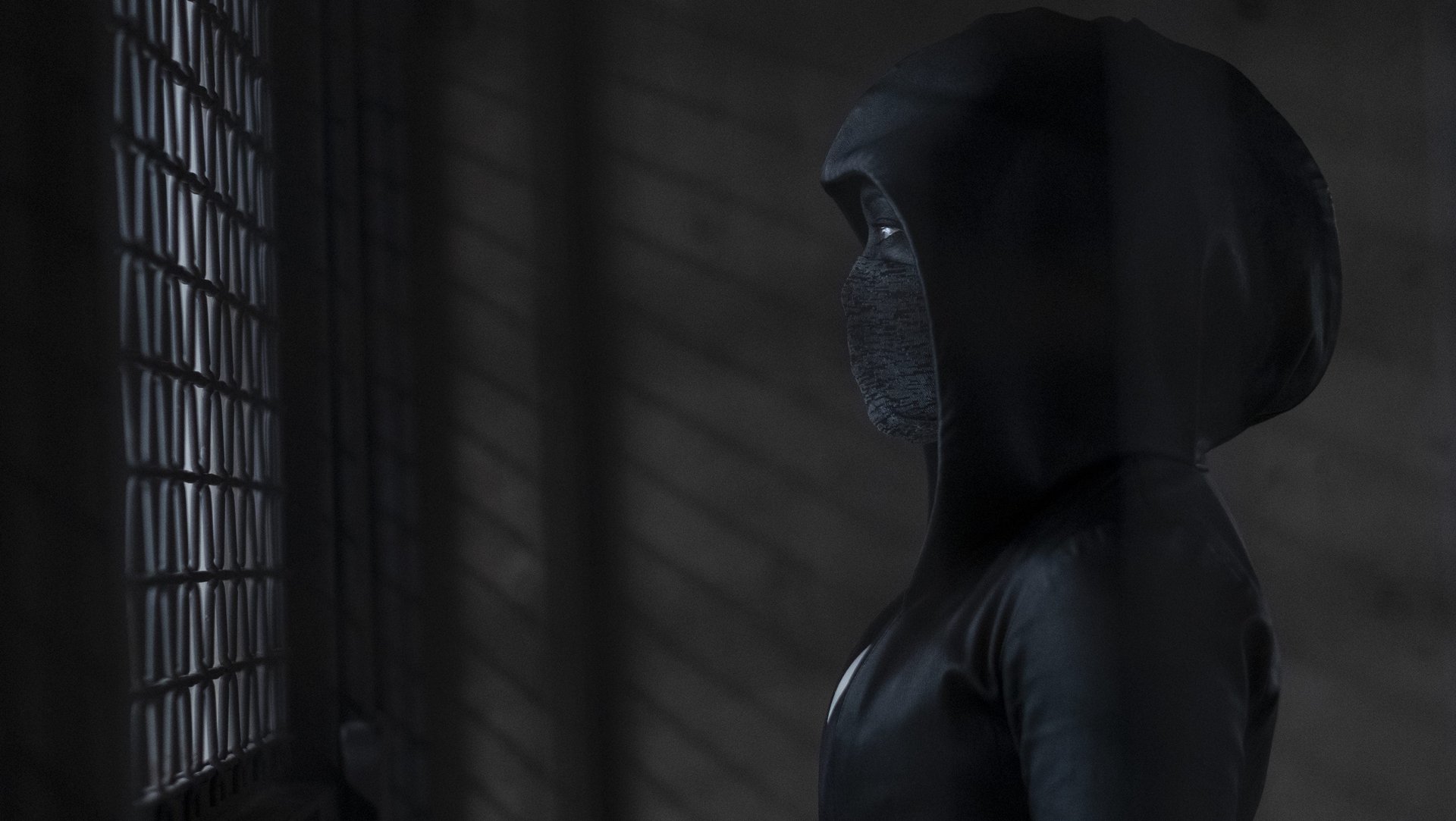HBO’s “Watchmen” is great. Its comic creator Alan Moore wants nothing to do with it
More than 1.5 million people watched the premiere of HBO’s critically acclaimed new series Watchmen. Alan Moore was not one of them.


More than 1.5 million people watched the premiere of HBO’s critically acclaimed new series Watchmen. Alan Moore was not one of them.
Moore, a legend of the comic-book industry, has a complicated relationship with his Watchmen comic, which is widely considered to be one of the greatest achievements in the history of the medium. Not long after penning the original story alongside illustrator Dave Gibbons in 1986, Moore severed ties with publisher DC Comics over what he believed was unfair treatment.
Language in his contract with DC said the rights to the story would revert back to Moore and Gibbons once it went out of print, but Moore soon realized the publisher never intended for that to happen. “You have managed to successfully swindle me, and so I will never work for you again,” he told the New York Times in 2006, referring to the acrimonious end to his association with the influential comics publisher.
Since then, Moore has refused to attach his name to any DC property he made. And he’s no fan of the Hollywood adaptations of his creations, including From Hell (2001), The League of Extraordinary Gentlemen (2003) and V for Vendetta (2005). Since the mid-2000s, he hasn’t allowed film adaptations of the work he still controls.
He also refuses to be associated with adaptations of work that he doesn’t control, like Watchmen. ”My book is a comic book. Not a movie, not a novel. A comic book,” he told Entertainment Weekly in 2005. “It’s been made in a certain way, and designed to be read a certain way.” In the HBO show’s credits, Gibbons is credited as a co-creator of the original comic, but Moore’s name is nowhere to be found. (Gibbons, meanwhile, is a consultant on the show, and he seems pretty excited by it.)
HBO’s Watchmen, as excellent as it is, raises questions about the ethics of playing around with someone else’s creation without their permission. It’s putting the debate about creator rights back into the spotlight at a time when a huge portion of the most successful TV shows and films are thriving off the backs of their originators.
“There is no version of Watchmen I could make that would please him,” Damon Lindelof, the showrunner of the HBO series, told Quartz last month. “Not only that, but there’s no version of Watchmen I could make that he would ever watch.”
Lindelof’s Watchmen series does not directly adapt Moore’s story, but rather tells a new one that takes place in a present-day version of the fictional world Moore and Gibbons first created three decades ago. While a few of Moore’s characters and concepts return, the HBO show is very much its own thing. The legality of its existence is certainly not in question—Moore has long since given up on hoping (or caring) that the Watchmen rights will be reverted back to him. The story, legally, belongs to DC Comics, a subsidiary of Warner Bros.—which also owns HBO.
But the ethics are another question—one Lindelof considers often. He reveres Moore, and understands why some of the writer’s acolytes will decide not to watch the show out of respect to its creator. In a wide-ranging interview with Vulture, Lindelof acknowledged the inherent hypocrisy of wanting to honor Moore’s story while knowingly disregarding his wishes:
What are the ethical ramifications of this even existing at all when I completely and totally side with the creator? Acknowledge that the creator has been exploited by a corporation? Now that very same corporation is basically compensating me to continue this thing.
I ask, “Is it even hypocrisy?” Then I say, as a fan, “Where would I come down on this thing if someone else was doing it? If I heard someone else was doing an HBO series called Watchmen that was not a strict adaptation of the book?” I felt that I’d be really angry about it and then I’d watch it. [Laughs.] I wonder how many of the angry people who don’t think it should exist will actually have the discipline to not even watch it. Those are the people that I really admire. The ones who are like, “This shouldn’t exist and I’m literally not watching it.” That’s an admirable position.
The history of comics is replete with writers adapting, appropriating, and remixing other writers’ characters. Most of today’s most prominent comic-book heroes, from Batman to Spider-Man to Wonder Woman, have been transformed countless times throughout the years, both in comics and also outside of them in other media. Moore himself used characters created by other writers several times throughout his illustrious career, though some of them were in the public domain. (And none of these uses, as far as we can tell, violated the wishes of the characters’ creators.)

In fact, many of the masked heroes in Moore’s Watchmen are based on characters originally from Charlton Comics, which had just been acquired by DC when Moore started conceiving of the idea. (Some were created by Steve Ditko, who’d later go on to co-create the Marvel superhero Spider-Man with the late Stan Lee). In an interview about Watchmen’s origins with The Comics Journal in 1987, Moore was candid about his desire to appropriate those characters in his own story: “I just thought that they were all lying around, up for grabs, and I hadn’t heard of anything else that was being done with them,” he said. “They were just a nice, innocent little bunch of characters, which is always fair game, really, and there was a self-contained universe with four or five characters, and I thought it’d be nice to just take that and do whatever you wanted with it.”
Comics have never been afforded the same cultural status as other art forms, leading to all sorts of ethical issues about if and how that work should get to be used or referenced by others. Roy Lichtenstein, for instance, became one of the most influential pop artists of the 20th century largely by copying panels from comic books without ever crediting the original artists. Comics publishers have spent decades in legal battles with the heirs of the creators of some of their most iconic characters, like Superman and the Avengers, over fair compensation for their use.
In 1988, a group of independent comic writers and artists drafted a “Creator’s Bill of Rights,” designed to help protect their ownership over material they created, and to avoid being exploited financially by publishers. Unlike most other fiction writing, comics are generally written as work-for-hire—meaning the publishers, not the authors, own the content, and can do with it what they wish.
Moore was one of the writers leading the charge against work-for-hire practices in the 1980s. Considering how much Hollywood today still runs on appropriating the work of others (Quartz member exclusive)—comic book writers and artists specifically—the Creator’s Bill of Rights probably hasn’t had the effect its signers intended.
Some Watchmen fans have argued that enough time has passed since the comic’s release that other writers should be able to do what they want with the material without feeling bad about it. Lindelof, for instance, has encouraged other storytellers to tell the next story in his Lost universe, should they come up with a compelling idea. (Lost, which Lindelof co-created, aired on ABC from 2004 to 2010.) And he’s hinted that his Watchmen TV show is a self-contained story—much like Moore’s comic—and will only last one season. In an interview with Paste, Lindelof said he’d like to see what Black Panther director Ryan Coogler would do with the Watchmen universe.
That makes the veteran TV writer very different from his comic-book idol. “[Moore] is fiercely protective of his creations,” Lindelof said—but he, decidedly, is not. “Damon Lindelof is not afraid of living in the gray area,” Hong Chau, who plays Lady Trieu in the HBO drama, told Quartz. That moral ambiguity applies to both the fictional world of the show, and the decision to make it in the first place. Lindelof is more worried about what people will think of his work than how they’ll remember him as a storyteller.
“That’s not something that’s keeping me up at night,” he said. “Lots of other things are, but not that.”